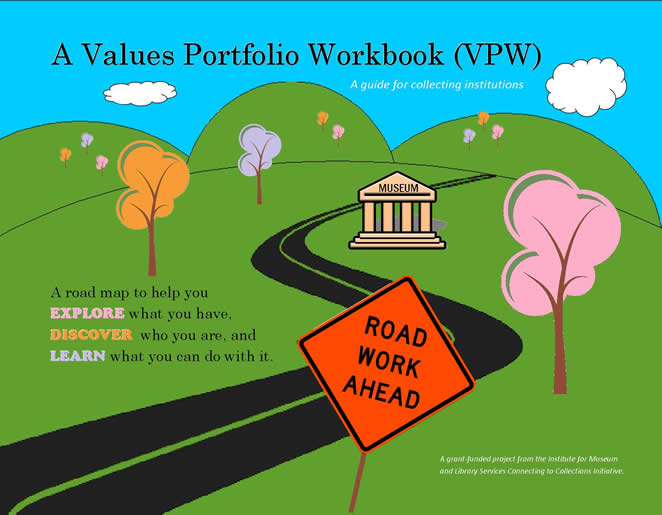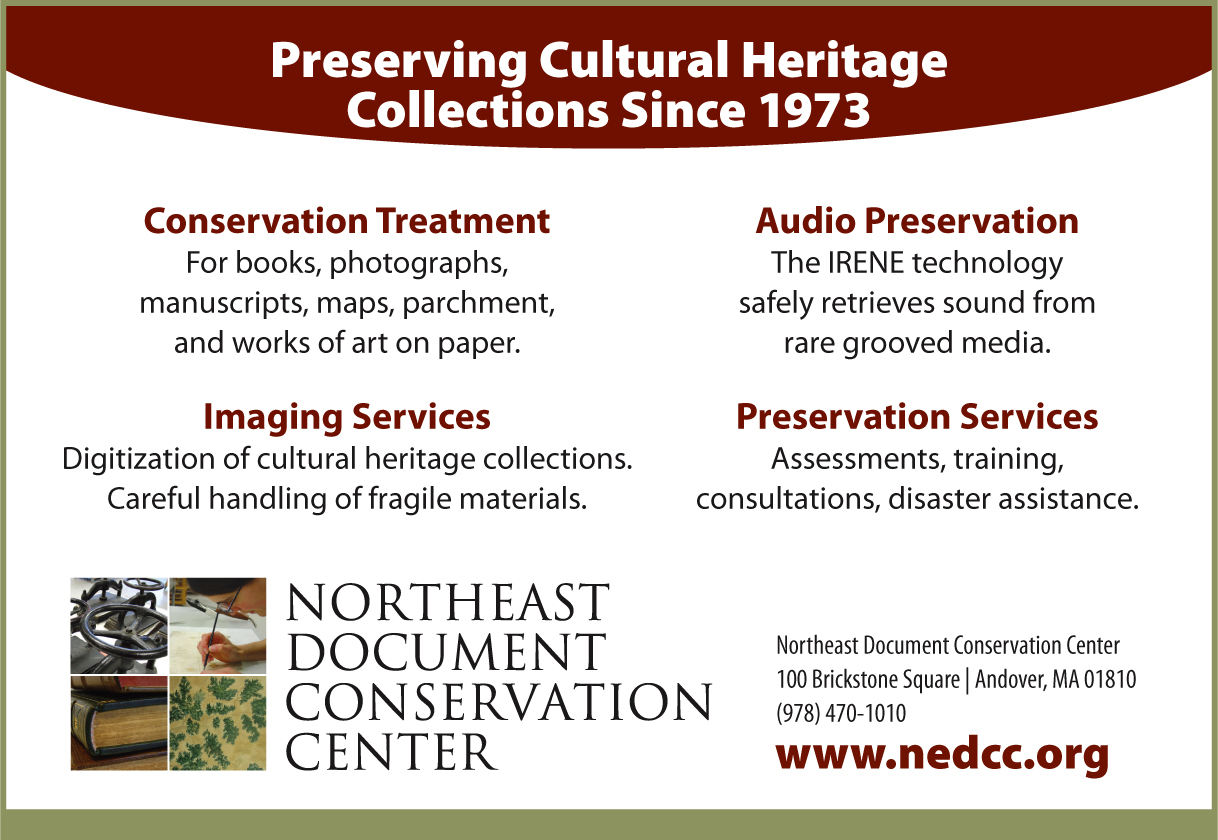
The Values Portfolio Workbook: Maine’s Approach to Values-based Collection Assessment
By Sheri Leahan, Executive Director, Washburn-Norlands Living History Center; NEMA Board
The stewardship of Maine’s rich cultural heritage is entrusted to many museums, libraries, archives, and historical societies throughout the state. Though they vary widely in resources and collections management expertise, these institutions all share a common commitment to conserving and preserving our cultural heritage for future generations. As is the case in many states, numerous collections and collection holding institutions are in crisis in Maine. Many are too small or too regionally restricted to attract adequate funding, or, unfortunately, too isolated to even be aware of the mechanisms for how to request training or aid. As one of the poorest states in the U.S., with a predominantly rural make-up and an aging population, Maine has economic and sociological challenges that directly affect its collecting institutions and put the state at risk of losing its historical and institutional knowledge.
Maine’s collecting institutions need assistance to improve visibility, attract and educate younger volunteers, garner funding, and protect their collections. It is not a stretch to say that many of Maine’s cultural institutions are overwhelmed, under-funded, and facing extinction. Moreover, the challenges Maine’s institutions face—volunteer turnover, rapid technological advances, aging populations, and limited resources—are shared by collecting institutions throughout the country.
In an attempt to tackle these issues, the Maine State Museum, in partnership with the Association of Maine Archives and Museums (MAM) and six other Maine-based organizations with strong ties to Maine’s collecting institutions, embarked upon an initiative entitled “Preserving Maine’s Cultural Heritage (PMCH)” funded by the Institute for Museum and Library Services as part of its Connecting to Collections planning grant program. The project sought to raise public awareness about collections care and marshal public and private support for Maine’s rich cultural heritage by organizing a working group dedicated to preserving Maine’s Cultural Heritage, compiling existing collections-based information held within the state, creating a values assessment tool for collecting institutions to evaluate their holdings, establishing case studies, and offering workshops to test the system and introduce Maine institutions to values-based assessment skills.
Right from the start, the PMCH working group focused on the need to move the values assessment tool from an academic, white-paper style format to a more user-friendly, self-guided workbook publication that would be inviting to both professional and all-volunteer institutions. As an active partner in the PMCH project, MAM took the lead on the design and production of the new Values Portfolio Workbook (VPW). A fun, easy-to-follow, non-threatening workbook format could help fill the gap between training offsite and implementation on site, between helpful information and meaningful action.
MAM’s members made up the four case studies that first applied the values assessment to their own organizations in 2012 and provided valuable feedback to improve the process. MAM also facilitated three regional workshops in 2013 through which the workbook and project was shared with collecting institutions throughout Maine.
The Values Portfolio Workbook, an easy guided self-study, allows a collecting institution to:
- gain a greater understanding and appreciation for its collections;
- clearly articulate institutional strengths, areas of need and unique challenges;
- identify current and prospective user groups (e.g., members, patrons, visitors) and how these groups can be leveraged in support of the organization and its collections;
- set practical short and long-term goals for addressing issues of concern; and
- identify potential funding sources and prioritize resource allocation.
The VPW provides the tools for starting a conversation among stakeholders within an organization and guides the conversation through a series of steps. As items are evaluated and assessed, they are assigned values. User groups are identified and their motivations are considered, as is the relationship of the user group to the organizations’ mission. Next, collections are rated for their scope of influence locally, regionally, nationally, and beyond. Collections are also evaluated for their relevance to the mission of the organization. By understanding the relationship between all of these factors, collecting institutions can begin to set priorities and develop short and long term goals.
The VPW is a tool to help organizations think about their collections in new ways. Through a guided conversation, participants tease out the many values hidden in a collection. Assigning values to individual objects as well as user groups serves as an exercise in uncovering what is most important and where resources should be focused. Participants leave the exercise with a better understanding of their organization and the people who use and care for it. By clearly articulating the values of their collection, organizations are better able to care for them, while at the same time make a meaningful case to supporters in order to secure the resources necessary for future sustainability. The results of this simple conversation could include higher visitation, increased membership, targeted fundraising, and greater community support. At the very least, a values-based assessment facilitates identifying organizational needs, prioritizing goals, and planning for the future.
The Values Portfolio Workbook was presented at the NEMA conference on Wednesday, November 4 in a session entitled, “Inspiration Under Your Nose: A Roadmap to Exploring Your Collections, Discovering Who You Are, and Learning What You Can Do with It.” The session was led by Sheri Leahan, Director, Washburn-Norlands Living History Center, and Erin Bishop, Director, Maine Archives and Museums, who both worked on the creation of the values assessment process and the Values Portfolio Workbook. In addition, Deborah Staber, Director, L.C. Bates Museum, and Jeanne Madden, Board Member, Falmouth Historical Society, were on hand to share their experience in using the values assessment process at their own organizations. Participants were encouraged to attend with others from their organization and to begin their own values-based conversation during a workshop portion of the session.
